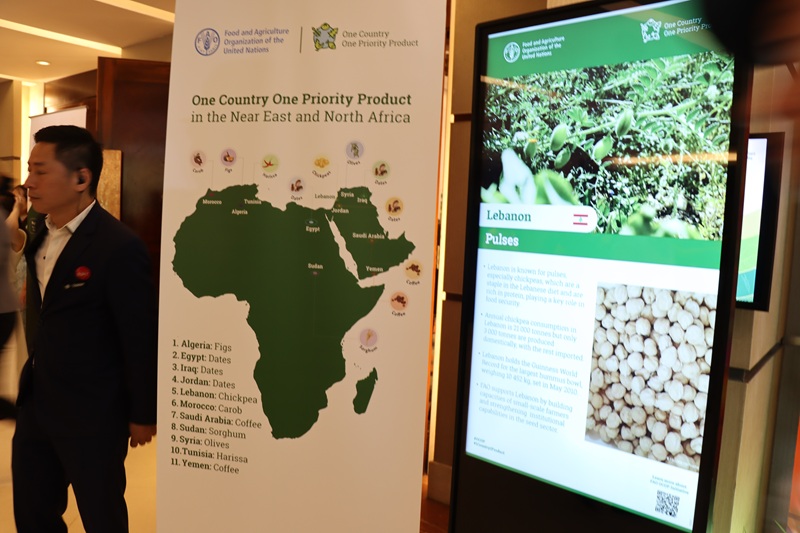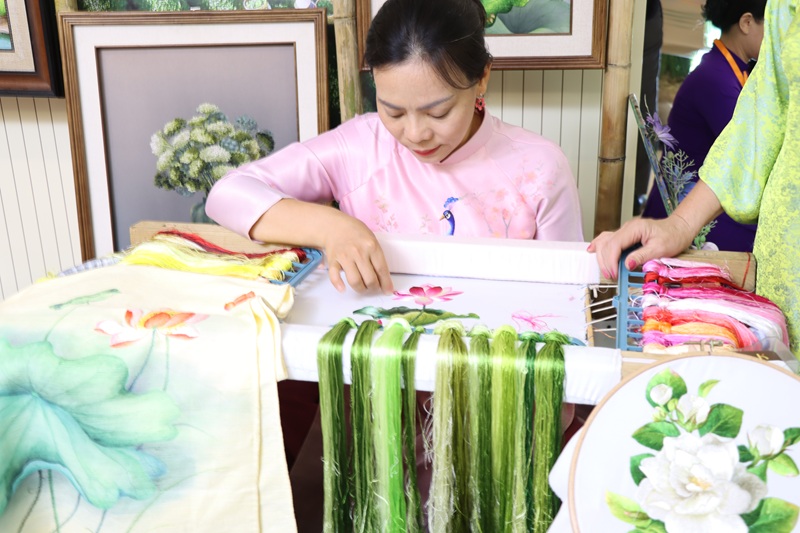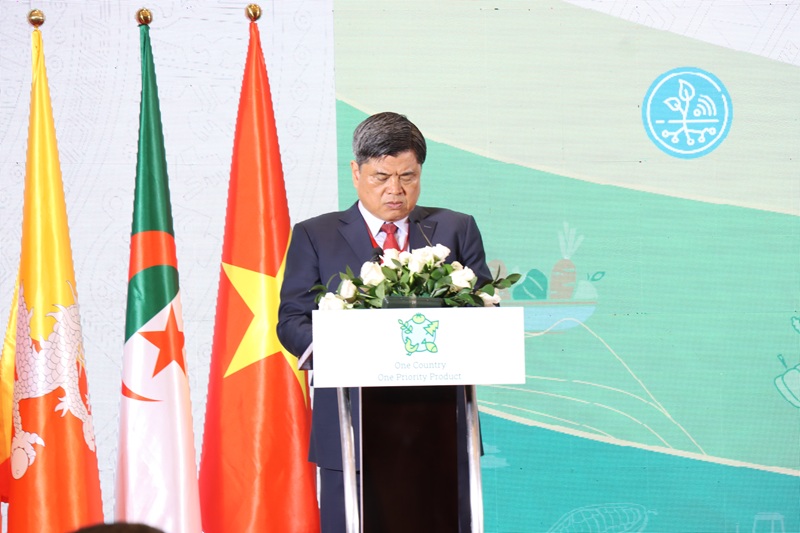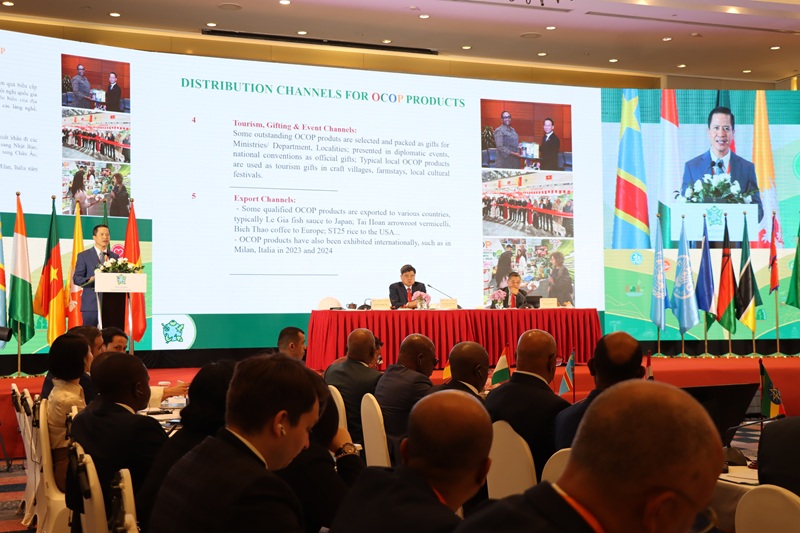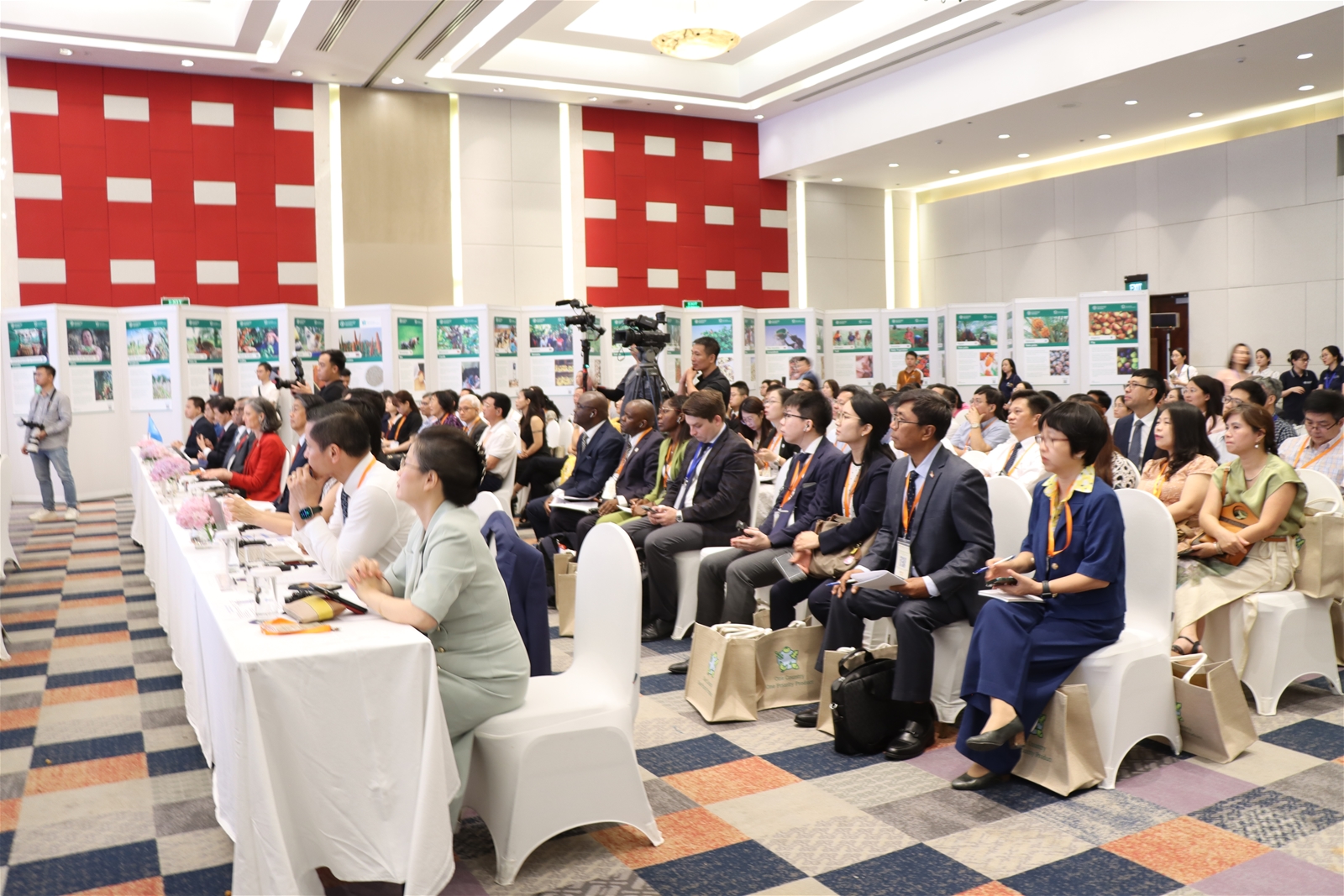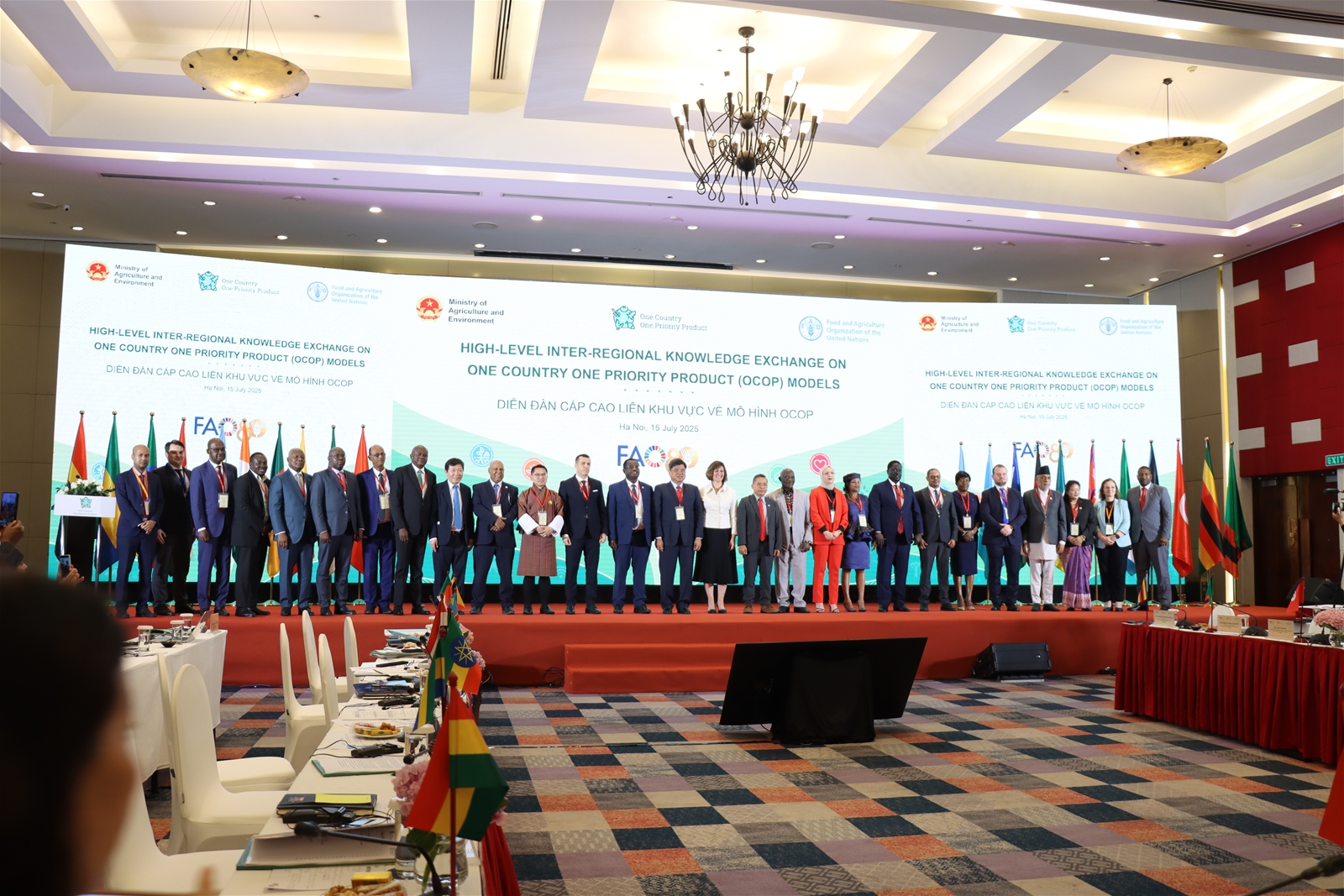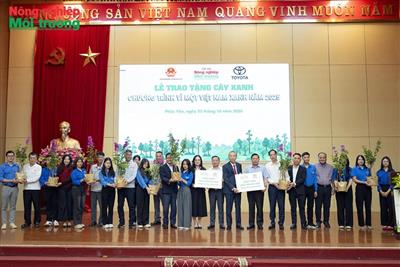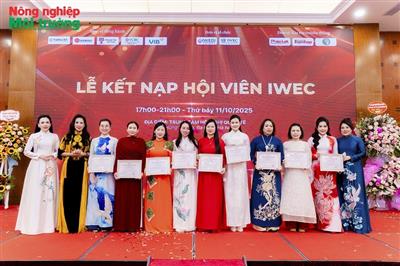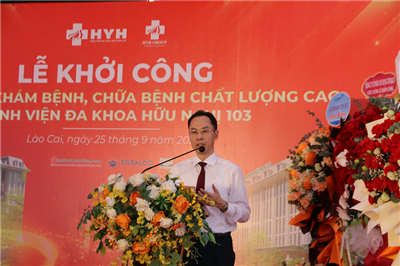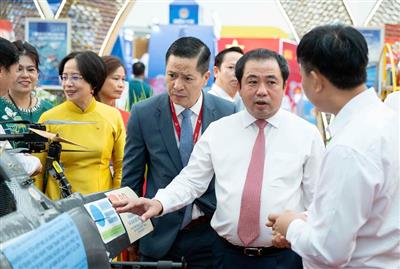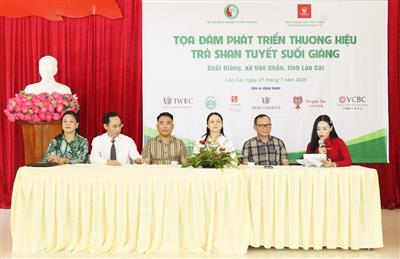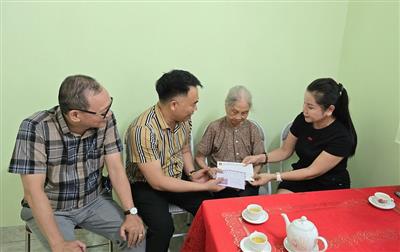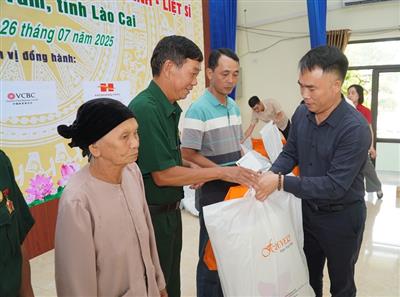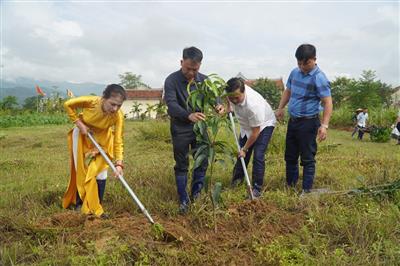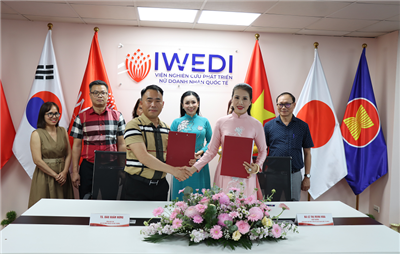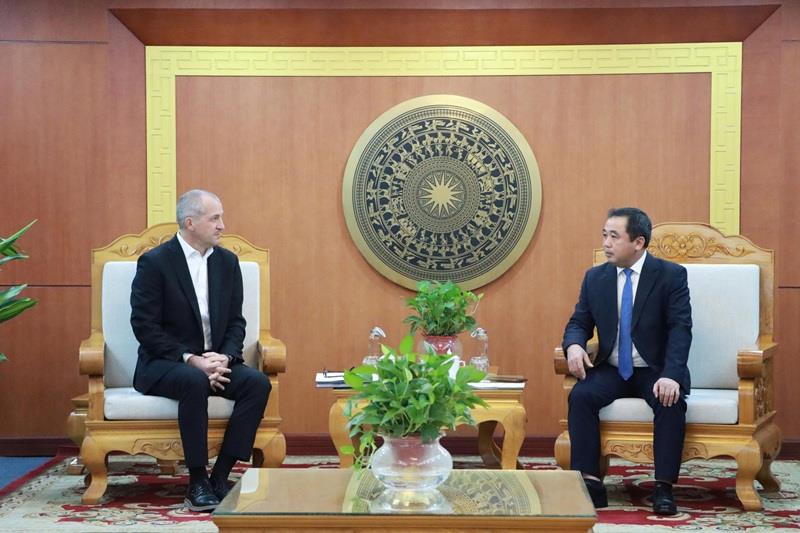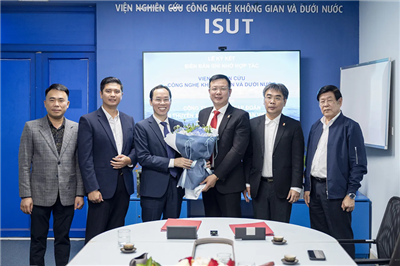
From Vietnam to the world: OCOP sparks cross-continental dialogue on rural innovation
15/07/2025TN&MTOn 15-16 July 2025 in Hanoi, the Ministry of Agriculture and Environment of Viet Nam, in collaboration with the Food and Agriculture Organization of the United Nations (FAO), convened the High-Level Inter-regional Knowledge Exchange on One Country One Priority Product (OCOP) Models. The event brought together agriculture ministers and senior officials from 17 African and Asian countries. As host and model-sharing country, Viet Nam presented its “One Commune One Product” (OCOP) program as a successful example of community-driven rural development, innovation, and product branding — inspiring interregional cooperation in agrifood systems transformation.

The event opened with a cultural performance by artisans who produced OCOP products. Showcasing traditional music, folk dances, and ethnic instruments, the performance highlighted the deep cultural roots of Viet Nam’s rural specialties and reflected the country’s approach to linking heritage with innovation in rural development.
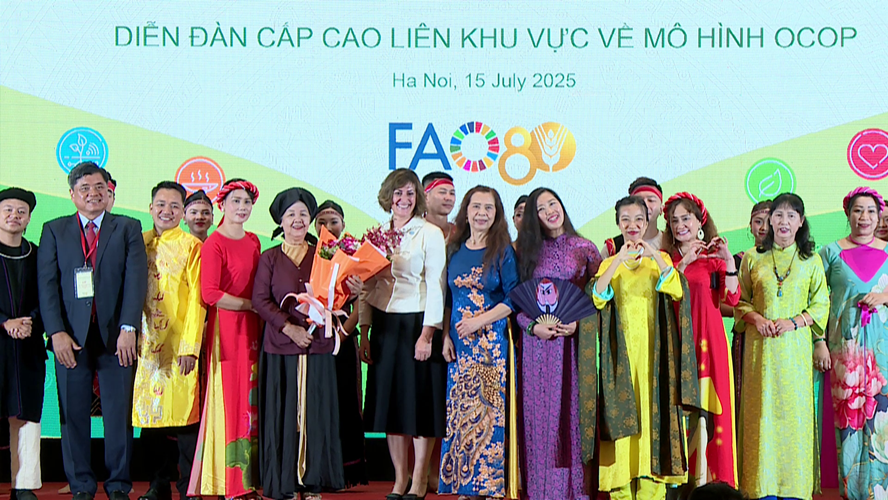
Deputy Minister Tran Thanh Nam and FAO Deputy Director-General Beth Bechdol presented flowers to the artisans who performed in the opening showcase — many of whom were also OCOP producers representing diverse rural communities across Viet Nam
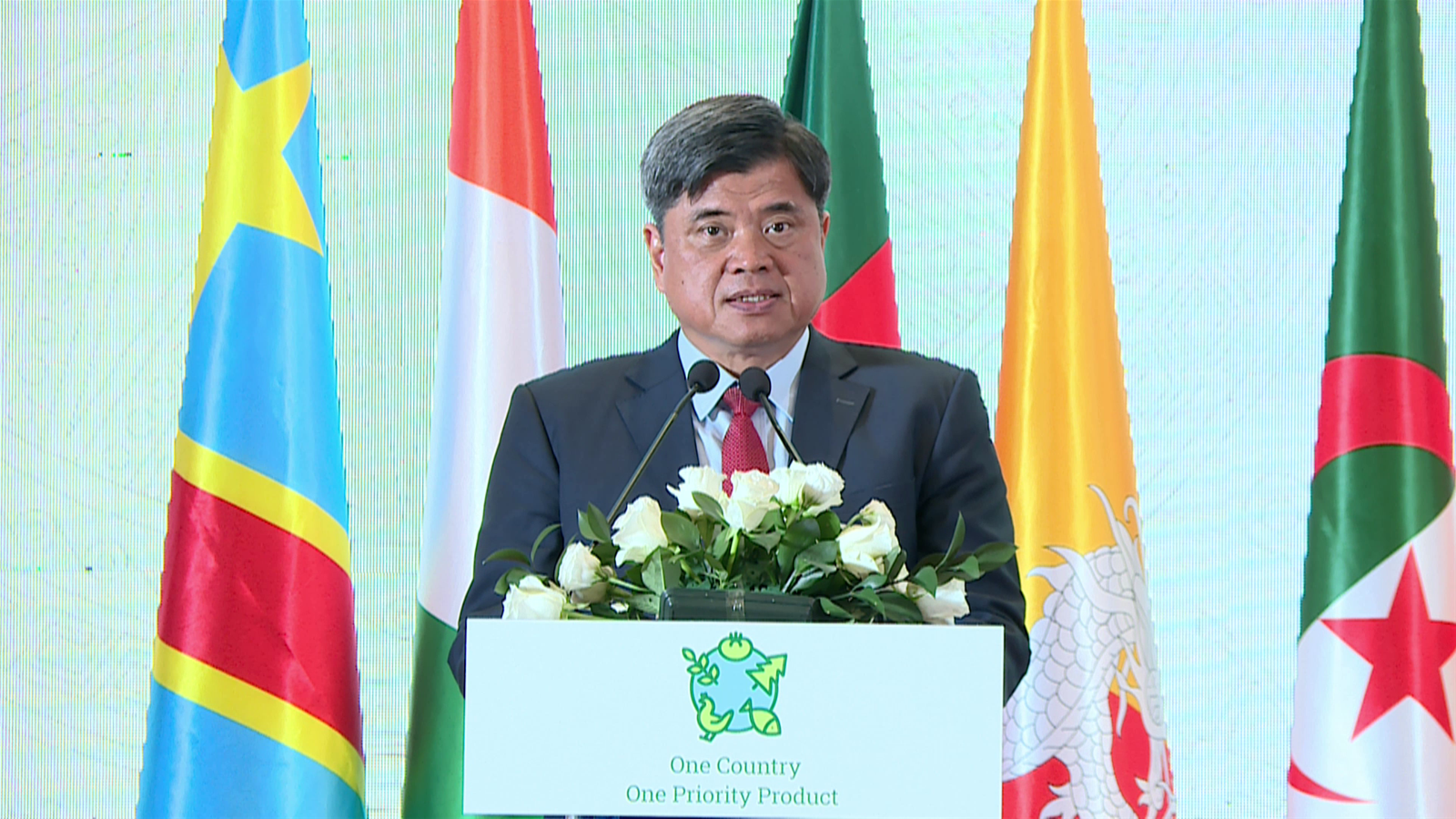
Deputy Minister Tran Thanh Nam delivered opening remarks, emphasizing that the forum resulted from FAO Director-General QU Dongyu’s initiative during his February 2025 visit to Viet Nam. He reaffirmed the country’s commitment to transforming agrifood systems through the OCOP programme, which aligned with FAO’s global vision of “Four Betters.” He stressed OCOP’s success in empowering local producers and creating millions of jobs, and called for stronger South–South cooperation and global partnerships.
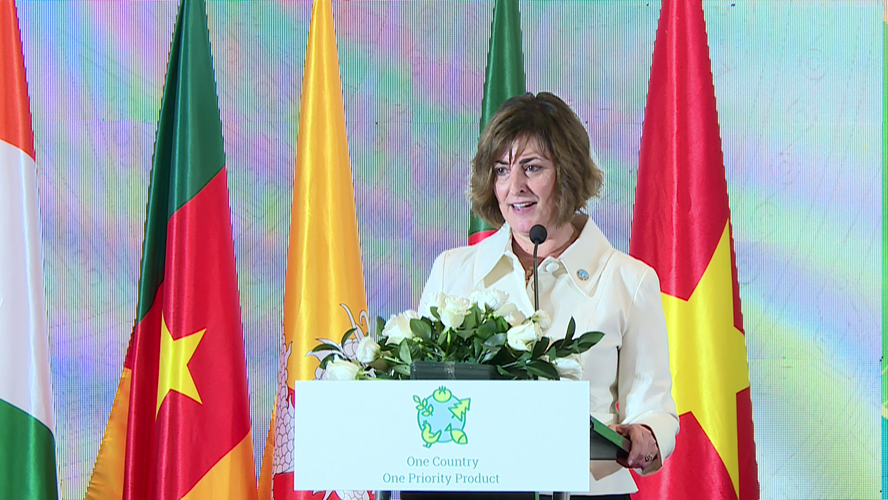
FAO Deputy Director-General Beth Bechdol highlighted Viet Nam’s leadership in agrifood systems transformation. She noted that the Africa–Asia dialogue reflected FAO’s OCOP vision to elevate underutilized agricultural products with unique cultural and geographic value. She praised Viet Nam’s OCOP programme as a model of rural innovation and emphasized the need for resilient, diversified agrifood systems.
FAO Director-General Dr. QU Dongyu underscored Viet Nam’s role in inspiring the global OCOP initiative. He praised its achievements in poverty reduction, food security, and rural development, with over 16,500 OCOP products promoted nationwide. He called for enhanced South–South and Triangular Cooperation and reaffirmed FAO’s commitment to transforming food systems for better production, nutrition, environment, and life.
Delegates visited the OCOP product exhibition area, which showcased a wide range of Vietnamese products — from tea and spices to handcrafted goods — rooted in local culture and tradition.
Vietnamese artisans performed live demonstrations of traditional craft techniques and cultural expressions behind OCOP-certified products, offering delegates first-hand insight into the stories behind the labels
The exhibition also featured signature agricultural products from participating countries, highlighting the diversity of OCOP models and their contributions to sustainable rural development across regions
Deputy Minister Tran Thanh Nam presented the key pillars of Vietnam’s OCOP Program, which has been implemented nationwide with six product categories, including food, beverages, medicinal herbs, handicrafts, ornamental creatures, and community-based tourism. He emphasized the development of raw material zones with quality certifications and sustainable linkages, already established by 48.3% of OCOP producers. The program promotes standardization, innovation, and brand building rooted in local culture and indigenous knowledge. OCOP products are evaluated at both national and provincial levels, and supported through trade promotion, e-commerce, and periodic quality monitoring every three years
According to Dr. Nguyen Minh Tien, Director-General of the Trade Promotion Centre for Agriculture, Vietnam’s OCOP programme faces major challenges. Many producers are small-scale, craft-based households or cooperatives, making it difficult to meet large, long-term orders and uniform standards. Digital transformation and e-commerce adoption remain weak, with limited branding and online presence. There is also a lack of consistent funding and technical standards, while regional and value chain linkages are still fragmented. OCOP products face strong competition from cheap industrial goods and imports
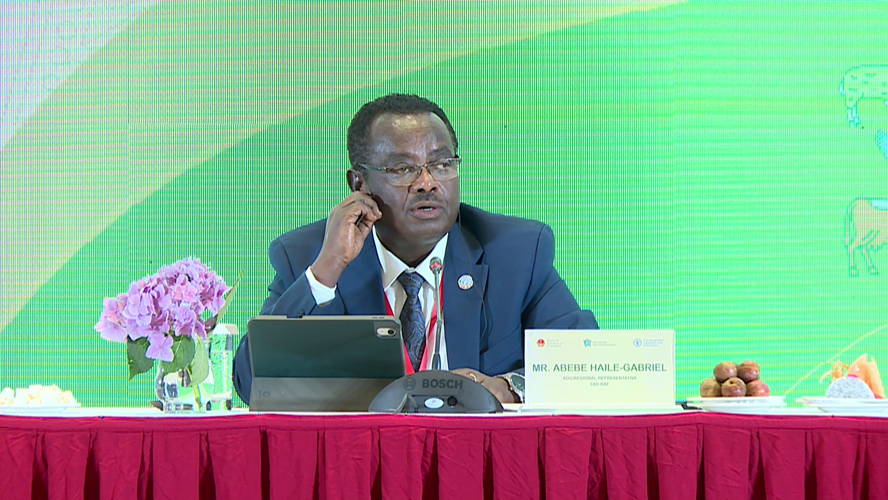
Dr. Abebe HaileGabriel, Assistant Director-General and Regional Representative of FAO Regional Office for Africa, chaired a roundtable discussion focusing on key issues such as institutional, technical, and financial challenges in OCOP implementation; value chain obstacles in Specialized Agricultural Products (SAPs), including production, processing, and trade; and the potential relevance and adaptability of Vietnam’s OCOP model to participating countries
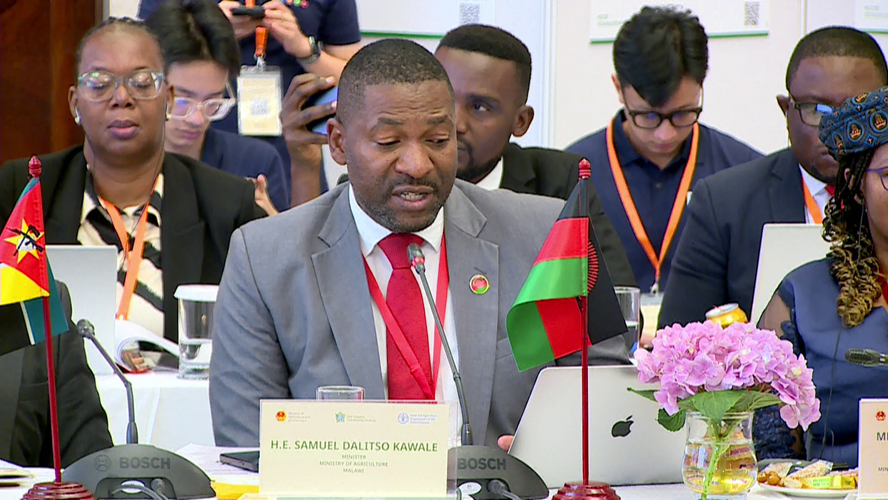
Malawi’s Minister of Agriculture, Hon. Samuel Dalitso Kawale, highlighted his country’s journey with OCOP as a transformative effort to revive the banana industry after a devastating virus outbreak. He credited the program for helping Malawi rebuild through innovations such as improved tissue culture, community-run farms, and expanded extension services. Inspired by Vietnam’s model, Malawi is now focusing on product specialization, digital marketing, branding, and youth and women engagement. The Minister emphasized Malawi’s commitment to learning, adapting, and boldly innovating to build an inclusive, technology-driven agricultural sector aligned with its vision 2063
Ministers and senior agricultural policymakers from 17 countries across Africa and Asia gathered in Hanoi for the first inter-continental OCOP dialogue to explore inclusive, resilient, and profitable smallholder farming
Agriculture ministers and senior officials from Bhutan, Cameroon, Cote d‘Ivoire, Democratic Republic of the Congo, Gabon, Ghana, Ethiopia, Lesotho, Malawi, Mozambique, Nepal, Sierra Leone, South Sudan, Tunisia, Viet Nam, Zambia and Zimbabwe attended the 15-16 July 2025 High-Level Inter-regional Knowledge Exchange on One Country One Priority Product (OCOP) Models
Ngoc Huyen


.JPG)
